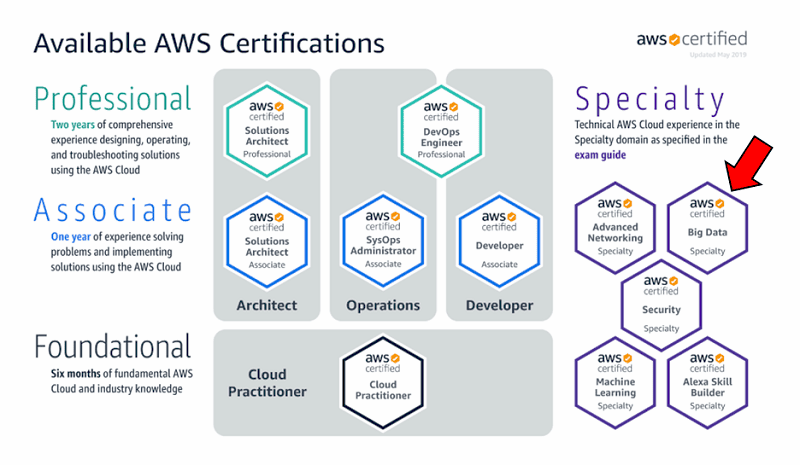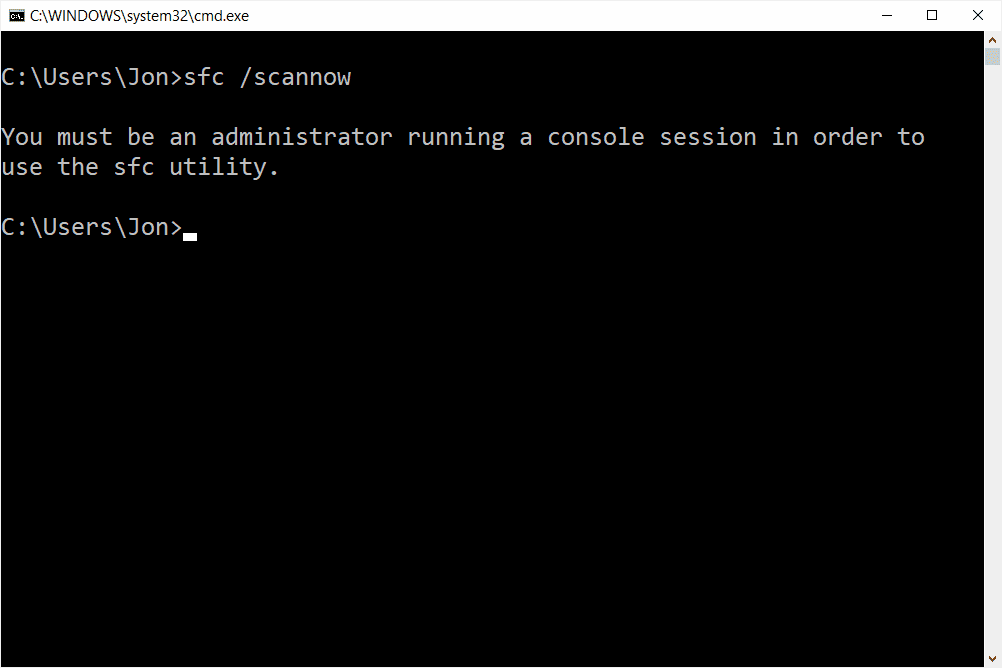Introduction to IT Certifications
AWS Certifications are increasingly recognized as a crucial credential in the IT industry. As organizations move towards cloud computing, certifications from providers like AWS signify a professional’s ability to manage and optimize cloud-based solutions. IT certifications serve as a benchmark for skills and knowledge, ensuring that professionals are equipped with the latest technologies and practices. They validate expertise, which can be pivotal for career advancement and job security.
Importance of Certifications in Career Growth
Certifications play a significant role in career growth within the IT sector. Professionals who obtain AWS Certifications often experience numerous benefits, including:
- Enhanced Job Opportunities: Employers often prefer certified candidates, making it easier to secure interviews.
- Higher Salary Potential: Certified professionals typically command higher salaries compared to their non-certified counterparts.
- Increased Credibility: Certifications validate a professional’s skills, enhancing their reputation in the industry.
- Access to Exclusive Resources: Certified individuals often gain access to exclusive training materials and professional networks.
In today’s competitive job market, having AWS Certifications can set a candidate apart from others. Companies recognize the value of certified professionals in driving innovation and efficiency, leading to greater demand for such credentials.
Overview of Major Tech Providers
In addition to AWS, several major tech providers offer certifications that are highly regarded in the industry. These include:
- Cisco: Known for networking certifications, Cisco offers pathways that validate skills in network infrastructure.
- Google Cloud: Their certifications focus on cloud services, data engineering, and application development.
- Microsoft: Offers a range of certifications across various technologies, including Azure cloud services.
- CompTIA: Focuses on foundational IT skills and certifications such as A+, Network+, and Security+.
Each of these providers offers unique certifications that cater to different aspects of IT, contributing to a well-rounded skillset for professionals in the field.
Detailed Look at AWS Certifications
AWS Certifications are essential credentials for professionals looking to demonstrate their expertise in cloud computing. These certifications validate an individual’s skills in various areas of AWS, including architecture, development, and operations. The primary AWS Certifications include:
- AWS Certified Solutions Architect – Associate: Focuses on designing distributed systems and applications on AWS.
- AWS Certified Developer – Associate: Validates proficiency in developing and maintaining applications on AWS.
- AWS Certified SysOps Administrator – Associate: Concentrates on deployment, management, and operations on AWS.
- AWS Certified Solutions Architect – Professional: An advanced certification for experienced professionals.
- AWS Certified DevOps Engineer – Professional: Emphasizes continuous delivery and automation of processes.
- AWS Certified Security – Specialty: Focuses on securing data and applications in the AWS environment.
- AWS Certified Machine Learning – Specialty: Validates skills in machine learning and AI on AWS.
- AWS Certified Data Analytics – Specialty: Focuses on data analysis and visualization using AWS tools.
These certifications not only enhance knowledge but also increase professional credibility. The rigorous examination process ensures that certified individuals are well-versed in AWS services and best practices. Preparing for these exams involves a combination of study materials, hands-on experience, and practice tests.
Cisco Certification Pathways
Cisco offers a variety of certifications that are widely recognized in the networking field. Their certification pathways provide professionals with options to specialize in different areas of networking technology. The major categories include:
- Entry-Level: Certifications like Cisco Certified Technician (CCT) target individuals beginning their careers.
- Associate Level: The Cisco Certified Network Associate (CCNA) is a foundational certification focusing on networking fundamentals.
- Professional Level: Certifications such as Cisco Certified Network Professional (CCNP) require deeper knowledge and experience in networking.
- Expert Level: Cisco Certified Internetwork Expert (CCIE) is one of the most prestigious certifications, showcasing advanced skills.
- Architect Level: Cisco Certified Architect (CCAr) is the highest level, validating top-level architecture expertise.
Cisco’s certifications are structured to guide individuals through a clear career progression, allowing for continuous professional development. Each level builds upon the previous, ensuring that IT professionals remain current with evolving technologies and practices.
Google Cloud Certifications Explained
Google Cloud Certifications validate skills and knowledge in managing Google Cloud services. These certifications are critical as more organizations migrate to Google Cloud. The key certifications include:
- Google Associate Cloud Engineer: Focuses on deploying applications and monitoring operations on Google Cloud.
- Google Professional Cloud Architect: Validates skills in designing and managing secure, scalable solutions on Google Cloud.
- Google Professional Data Engineer: Emphasizes data processing, analysis, and visualization on Google Cloud.
- Google Professional Machine Learning Engineer: Focuses on implementing machine learning models and solutions.
Each certification requires a thorough understanding of Google Cloud products and services, along with practical experience. Preparing for these exams often involves online courses, hands-on labs, and study groups. Google also provides extensive documentation and resources to aid in preparation.
Comparing Certification Costs and Time Investment
AWS Certifications come with varying costs and time commitments, which are essential factors to consider for professionals aiming to enhance their credentials. The cost of AWS certification exams generally ranges from $100 to $300, depending on the level of the certification. For instance, the AWS Certified Solutions Architect – Associate exam costs around $150, while the Professional level certifications can cost up to $300. It is important to note that these fees are just for the exams; additional expenses such as study materials, training courses, and practice tests can significantly increase the total investment.
Time investment is another critical aspect when pursuing AWS certifications. On average, candidates may spend anywhere from 40 to 120 hours preparing for an exam. This preparation time varies based on the individual’s prior experience, familiarity with AWS services, and study habits. For example, an experienced IT professional might need less time compared to someone who is new to cloud computing.
Many professionals opt for online courses or bootcamps, which can provide structured learning but often come at a higher cost. Therefore, individuals should weigh the potential return on investment against the costs and time required for certification. Understanding these factors can help professionals make informed decisions about their certification journey.
Tips for Preparing for Certification Exams
Preparation for AWS certification exams requires a strategic approach to ensure success. Here are some effective tips to consider:
- Understand the Exam Format: Familiarize yourself with the exam structure, types of questions, and the scoring system. AWS provides exam guides that outline the topics covered.
- Create a Study Plan: Develop a comprehensive study schedule that allocates time for each topic, practice tests, and review sessions. Consistency is key.
- Utilize Official Resources: AWS offers a range of study materials, including whitepapers, FAQs, and training courses. Leveraging these resources can provide valuable insights into AWS services.
- Engage in Hands-On Practice: Practical experience with AWS services is crucial. Use the AWS Free Tier to gain real-world experience and reinforce your understanding of concepts.
- Join Study Groups: Collaborating with peers can enhance your learning experience. Consider joining online forums or local study groups to discuss topics and share resources.
- Take Practice Exams: Regularly assess your knowledge with practice exams. This not only helps identify weak areas but also builds confidence for the actual exam.
By following these tips, candidates can optimize their preparation and increase their chances of passing the AWS certification exams.
Future Trends in IT Certifications
The landscape of IT certifications, including AWS certifications, is continually evolving. Future trends indicate a growing emphasis on specialized skills and continuous learning. As technology advances, the demand for professionals with expertise in specific areas, such as AI, machine learning, and cybersecurity, is expected to rise.
Moreover, the integration of cloud technologies into various industries will drive the need for certified professionals who can effectively leverage these tools. As a result, AWS and other certification bodies are likely to introduce new certifications focused on emerging technologies.
Another trend is the increasing importance of practical experience. Employers are valuing hands-on skills more than ever, leading to a rise in certifications that include practical assessments or project-based evaluations. This shift encourages candidates to gain real-world experience alongside theoretical knowledge.
Additionally, with the rise of remote work, online certification courses and virtual training sessions are becoming the norm. This accessibility allows professionals from diverse backgrounds to pursue certifications, fostering a more inclusive workforce.
Conclusion and Final Thoughts
AWS Certifications play a pivotal role in the careers of IT professionals, providing validation of skills and knowledge in cloud computing. The benefits of obtaining these certifications, including enhanced job opportunities, higher salary potential, and increased credibility, make them a valuable investment.
As the IT industry continues to evolve, staying updated with the latest certifications and trends is crucial. Professionals should assess the costs and time investment associated with AWS certifications and adopt effective preparation strategies to ensure success.
In conclusion, pursuing AWS certifications not only boosts individual career prospects but also contributes to the overall advancement of the IT industry, driving innovation and efficiency in cloud computing.




